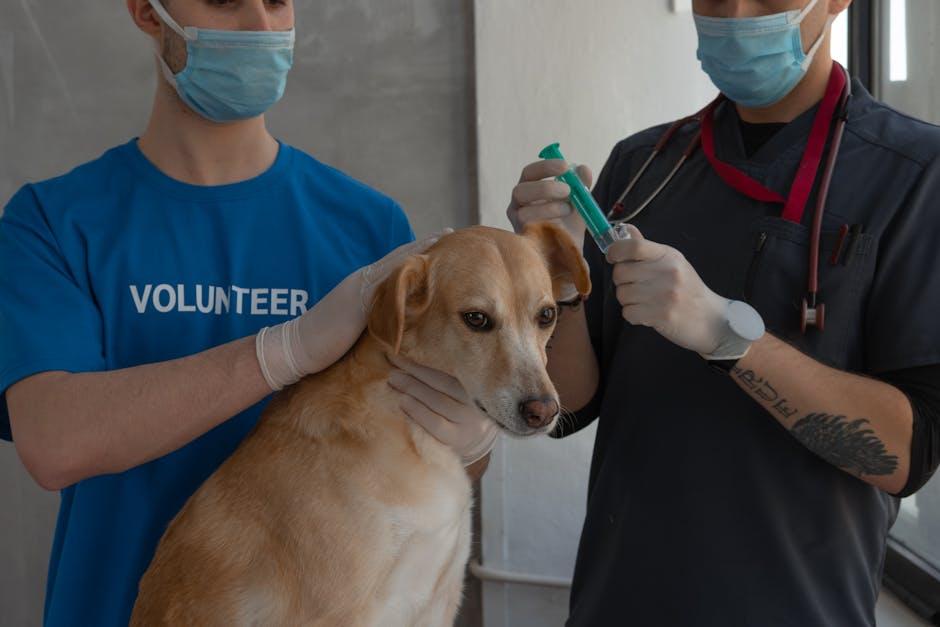Stepping into the vet’s office, you and your furry companion are embarking on a journey of care and understanding. Each visit is an opportunity to nurture your pet’s health and happiness. But where do you begin? What should you ask to ensure your beloved friend is thriving? In this article, we’ll guide you through the essential questions to ask during a checkup, empowering you to be the best advocate for your pet’s well-being. Whether you’re a seasoned pet parent or new to the world of wagging tails and gentle purrs, these insights will help you navigate the path to a healthier, happier life for your cherished companion.
Understanding Your Pet’s Unique Health Needs
Every pet is a unique bundle of joy, and understanding their specific health requirements is essential for their well-being. During your vet visit, it’s important to gather insights tailored to your furry friend’s individual needs. Here are some key questions you might consider:
- Dietary Needs: What is the best diet for my pet’s breed and age?
- Exercise Recommendations: How much physical activity should my pet get daily?
- Preventive Care: What vaccinations or preventive measures are necessary?
- Behavioral Insights: Are there any behavioral changes I should watch for?
By asking these questions, you can ensure that your pet receives care that is as unique as they are, promoting a healthy and happy life.

Decoding Nutritional Advice for Optimal Wellbeing
Understanding the dietary needs of your furry friend is crucial for their health and happiness. When consulting with your vet, consider these essential questions to ensure you’re providing the best nutrition possible. Start by asking about the specific dietary requirements for your pet’s breed, age, and health status. This will help you tailor their meals to support their growth and energy levels.
- Are there any specific ingredients I should look for or avoid in their food?
- What is the recommended feeding schedule and portion size?
- How can I tell if my pet is at a healthy weight?
- Are there any supplements that could benefit my pet’s health?
- What signs should I watch for that indicate a nutritional deficiency?
Engage in a conversation about the latest in pet nutrition science. Discuss any observed changes in your pet’s behavior or appearance, as these can often be linked to dietary needs. Remember, a well-informed diet is a pathway to your pet’s optimal wellbeing.

Exploring Vaccinations and Preventative Care
Ensuring your pet receives the right vaccinations and preventative care is crucial for their long-term health. During your vet visit, consider asking about the following:
- Core Vaccinations: Which vaccines are essential for my pet’s breed and lifestyle?
- Booster Schedules: How often should I schedule booster shots to maintain immunity?
- Preventative Measures: What additional steps can I take to protect my pet from common illnesses?
These questions can guide your conversation, helping you make informed decisions that cater to your furry friend’s unique needs. Your vet can also provide insights into emerging health trends and preventative strategies tailored to your pet’s environment.

Navigating Behavioral Concerns with Compassion
When addressing behavioral concerns, it’s essential to approach the conversation with empathy and understanding. Ask your vet about potential underlying causes that might be influencing your pet’s behavior. Are there any medical conditions that could be contributing to these issues? It’s crucial to understand whether your pet’s actions are a result of health problems or environmental factors.
- What signs should I watch for that might indicate stress or anxiety in my pet?
- Are there specific strategies or training techniques that could help alleviate these concerns?
- Could dietary changes play a role in managing their behavior?
By exploring these questions, you can work together with your vet to create a compassionate plan that supports your pet’s well-being, ensuring they feel safe, loved, and understood.


































